The Qingming Festival history should be dated back to over 2,500 years ago, the Zhou Dynasty (1046-771 BC). Folks tend to worship in temples during the day. Qingming Festival is also known as Qingming Jie (清明节) in Chinese, which formed the Four Traditional Chinese Festivals in China with Chinese Dragon Boat Festival, Spring Festival, and Mid-Autumn Festival, all of which mean a lot to Chinese people.
Apart from its great significance in Chinese culture, it has also had a great impact on other countries, like Vietnam, South Korea, Japan, Singapore, Malaysia, etc. Diverse celebrations will be held during the day.
Tomb Sweep Day usually falls on April 4th or 5th. Unlike other traditional festivals, it depends on the solar calendar, rather than the Chinese lunar calendar. The Tomb Sweeping Festival in China will offer people one day off to enjoy the Tomb Sweeping holiday.
Table of Contents
What is the Qingming Festival?
When is Qingming Festival 2026?
How is Qingming Festival Celebrated?
Qingming Festival Food
Best Places to Visit during Qingming Festival
Planning Your Qingming Festival Travel
Understanding Qingming in Chinese Culture
Qingming Festival in Other Asian Countries
FAQs About Qingming Festival
What is the Qingming Festival?
Qingming Festival, aka Spring Outing Festival, is also known as March Festival, Ancestor Worship Festival, and Tomb Sweeping Festival. According to its other names, you know that people will worship their ancestors on that day. Except for that, the Qingming Festival ranks fifth in 24 Solar Terms. An old line goes like “A drizzling rain falls like tears on the Mourning Day.” During the day, a vibrant landscape will appear in the Southern part of China. And it is not snowy and the temperature will rise in Northern China.
The Ching Ming Festival is coming, which predicts that spring is about to come, which is also closely connected to agriculture. Farmers will begin to plant seeds in the fields and embark on a series of plowing. In addition to farm practices and mourning for a relative who has passed away, there are other customs left. People will go out during the Chinese Tomb Sweeping Day to enjoy the spring and have fun outside when the males will be playing the ancient Chinese football game and the females will play on the swing.
When is Qingming Festival 2026?
China Tomb Sweeping Day distinguishes other Chinese festivals depending on the Chinese lunar calendar, which falls on a fixed day, the 4th or 5th day of the 4th month. As one of the Four Traditional Festivals, Chinese people will have a one-day holiday, which sometimes closely follows the weekend and forms a three-day Qingming holiday. The detailed table of China Tomb Sweeping Day is available for you as follows to help you more conveniently plan your trip.
| Year | Date of Qingming Festival | Public Holiday |
|---|---|---|
| 2023 | April 5 | April 5 |
| 2024 | April 4 | April 4-6 |
| 2025 | April 4 | April 4-6 |
| 2026 | April 5 | April 4-6 |
| 2027 | April 5 | April 3-5 |
| 2028 | April 4 | April 2-4 |
How is Qingming Festival Celebrated?
Chinese Qingming Festival has a history of 2,500 years, originating from the Zhou Dynasty(1046-256 BC). According to the historical record, people began to honor their ancestors during the Western Zhou Dynasty (1046-771 BC). However, the establishment of the Tomb Sweeping Festival was actually from the Tang Dynasty (618-907 AD). With thousands of years of history, a lot of customs have been formed, including tomb sweeping, spring outings, flying kites, etc. The Tomb Sweep Day combines happiness with grief.
Tomb Sweeping and Ancestor Worship
Of all Qingming Festival traditions, to some extent, tomb sweeping and ancestor worship belong to the most essential one, the heart of the Chinese Qingming Festival. Folks will come in front of graves to offer their favorite drinks, and food as tributes, burn incense, remove weeds, add fresh soil, and some new flowers or plastic ones around the grave to commemorate their past relatives. Besides, people will burn paper money, representing money, which is in case the deceased lacks money. At last, people will kowtow before the grave and light firecrackers before leaving.
During the day, these sacrificial offerings are popular, especially in rural areas. For now, the process of honoring past relatives has been greatly simplified in most cities. Most of the time, people will leave flowers in front of the tomb to remember their deceased relatives, especially youngsters, who are away from their hometown and busy with their careers. Some of the family will set an altar table at home and provide offerings to their dead ancestors.
Spring Outings ( tà qīnɡ )
The Day just comes with spring, the season of renewal. On the Tomb Sweeping Day holiday, Chinese people will Taqing, which refers to a spring outing. They not only sweep the tomb and worship past relatives at the Chinese Qingming Festival but also go out to enjoy the spring blossoms and witness nature turn green. During the holiday, the weather is warming up, therefore more folks will fly kites to relax and enjoy the vibrancy and the breath of life. It is believed that flying kites can lift people out of misfortunes and diseases.
Superstitions to Avoid
1. Avoid Wearing Colorful Clothes
Wearing colorful or bright clothes is considered disrespectful behavior, especially red and purple. Dark dressing should be more suitable for sweeping tombs.
2. Avoid Taking Photos
Taking photos should be avoided, no matter the people or the graveyard, which is disrespectful and may bring misfortune.
3. Pregnant Women Should Avoid Sweeping Tombs
Pregnant women are not advised to visit the graveyard. Because some tombs sit in higher places, it takes a long time. Tomb sweepers will set off firecrackers when leaving, which is not favorable for both the pregnant and the fetus.
4. Sweeping Tombs before 3 pm.
Generally speaking, most people will visit the grave as early as possible, from 10 am. to 3 pm. Sweeping tombs after 3 pm should be avoided, which is considered as inauspicious.
5. Avoid Laughing
Avoid loud laughter and criticism during the sweeping tombs, which are seen as disrespectful to ancestors and may lead to trouble.
6. Avoid Visiting Friends
It is not recommended to visit friends or relatives, especially visiting with kids, during the Tomb Sweeping Day. It is a special time to mourn for departed people.
7. Avoid Hanging Out around the Graveyard
Do not linger about the graveyard playing, especially for kids. It is advised to leave the graveyard after finishing sweeping tombs.
Qingming Festival Food
There are various foods in different festivals and places in China. The Qingming Festival's traditional food includes Green Rice Balls, Sazi, Qingming Zong, Nuangu Bao, Boboke, Egg, etc. Generally speaking, folks are prone to prepare this food two or three days earlier to eat or offer to the ancestors.
Green Rice Balls
Green rice balls are called 青团(qīnɡ tuán) in Chinese, a sweet green pellet mainly made from glutinous rice and vegetable juice and filled with various sweet or salt stuffing, and steamed on the top in a steamer container. As the flagship snack of Qingming Jie, it initially originates from Jiangnan areas, the south of the lower reaches of the Yangtze River. During the festival, almost every family will make or buy balls, which is an indispensable food on the Day, and its history can be traced back to over 2,000 years ago. Not only is the dough yummy, but also it is great for your health.
San Zi
San Zi,馓子(sǎn zǐ) in Chinese, is a kind of deep-fried dough twist, a crispy and delicious fried food. This traditional Chinese snack was known as cold food in old times. It is a tradition to eat the San Zi, during the Chinese Tomb Sweeping Day. Its ingredient varies in different parts of China. In Southern China, people will make this delicacy with rice and flour, while in Northern China, wheat flour or glutinous rice flour will be used as the ingredient. In Northwestern China, it has a variety of flavors.
Egg
Chinese folks believe that eating an egg during the Tomb Sweeping Festival can keep you healthy for a whole year. The traditional custom should be dated back to the Pre-Qin period(before 221 BC). Some regions in that period had the custom of fire prohibition. Except for eating eggs, there are some games to play, including painting eggs and carving eggs. Eggs painted with different colors are edible. Curving eggs is just for fun.
Best Places to Visit during Qingming Festival
To take full advantage of the Tomb Sweeping Day holiday, many domestic destinations deserve your visit to enjoy the breath of spring and an animated scene. Of all destinations, a trip to Beijing, Hangzhou, or Guilin can be recommended.
Beijing – Imperial Ancestral Temple
Beijing can take you on a visit to Chinese historical charm and show the most typical Chinese culture. In addition to many royal palaces and other imperial tourist spots, drawing tons of people every year, the Imperial Ancestral Temple is still a must-visit attraction. Imperial Ancestral Temple is the Number One Temple in China, the largest in scale, and represents the highest level of Chinese imperial temple, where emperors in the Ming and Qing Dynasties worship ancestors. It was regarded as the highest treatment for past contributors for the country to be enshrined in it.
The temple was built during the reign of Emperor Yongle of the Ming Dynasty(1403-1424 AD). The words on the temple plaque were written by Emperor Shunzhi. The ceiling of the temple was decorated by colorful paintings and gold bricks were spread over the ground.
It was renamed as Beijing Working People’s Cultural Palace and opened to the public on May 1, 1950. Honored in the Temple could be the highest honor for normal people, which impelled courtiers to be loyal and make contributions to the emperor and the state. In the hall of the temple, tablets for previous emperors are enshrined. For now, a popular saying regarding the Imperial Ancestral Temple is used to describe that you deserve the supreme glory.
Hangzhou – West Lake & Tea Culture
Tourists can enjoy the unique oriental culture in Hangzhou. For a spring outing, many scenic spots can be your alternatives, like West Lake Scenic Area, Xixi National Wetland Park, etc. Residual Snow on the Broken Bridge is not only one of the most iconic bridges in West Lake but also the place where the Chinese legend of the White Snake began. Paddling on the river makes people enjoy a profound sense of inner peace.
Spring Dawn at Su Causeway was regarded as the foremost among the Ten Scenes of West Lake. Strolling by the causeway to appreciate the renewed season is a good idea. Watching the sunset in the Leifeng Pagoda often appears on the to-do list of Hangzhou visitors. Night view in Three Pools Mirroring the Moon also attracts numerous visitors. Do not forget to take your equipment to freeze the moment, if you are a shutterbug.
Hangzhou is a paradise to experience tea culture, which is also the best option for a team outing. The green view and fragrance of tea all over the hill will make people relax, at the same time, tourists can learn more about tea art and feel the charm of tea culture.
Guilin – Rural Festivals
As the representative of the landscape of mountains and rivers, many foreigners will also come to catch a glimpse of this natural masterpiece. Guilin is known for its gorgeous landscape as a popular Chinese saying goes, “Guilin’s scenery beats all others in the world.” Celebrations in Guilin have their local features.
In addition to traditional customs, sweeping tombs, and worshiping ancestors, residents will make the local specialty, sticky rice cake made from mugwort leaves. Pureed mugwort leaves are mixed with glutinous rice flour and sugar, then the dough is rolled into balls, and stuffed with fillings made with peanuts, sesame, brown sugar, etc. In some rural areas, dragon dance and lion dance will be seen in the streets, dancing through houses and streets, and bringing happiness to villagers.
Planning Your Qingming Festival Travel
Timing Your Visit
Chinese Qingming Festival falls on April 5 in 2026, and the Qingming holiday ranges from the 4th to the 6th of April. It is estimated that these days might be the peak period, as most people sweep tombs during the days around the Qingming Festival. If traveling off-peak, you are recommended to start your trip one day earlier or later.
If traveling at peak times, larger crowds will be at popular sites. Booking accommodations and tickets in advance is a must. Short trips to the local city or the surrounding cities will be the popular alternatives due to limited holidays. Compared with the May Day Holiday, the Qingming holiday still belongs to the off-peak period, when the rise in hotel prices is not that sharp. Some people tend to go out on Qingming festival instead of May Day to avoid the peak crowds.
Packing Essentials
Except for identification, an umbrella is a must-have in case of a sudden change in weather. It is prone to be rainy around the Qingming Jie. And you’d better take a dark-colored coat for spring out. Plants and pollen tend to stick to coats, dark coats are more spill-resistant compared with light-colored ones. Besides, foldable chairs and power banks are necessary for the trip.
Sustainable Travel Tips
● Respecting gravesites especially when you worship or do tomb-sweeping.
● Adopting eco-friendly practices to commemorate the departed, like simplifying offerings and using the designated areas for burning when worshiping.
● Cleaning up and disposing of litter after paying respects.
● Choosing eco-friendly modes of travel. Family members had better carpooling to reduce carbon emissions and traffic jams.
● Minimizing wastes. Take reusable containers for food and drinks when taking a spring outing. Reduce using one-off goodies.
Understanding Qingming in Chinese Culture
Confucian Values & Family Bonding
Not only is the Qingming festival the most important traditional Chinese festival, but it is also an expression of filial piety in Confucian values. The “Analects” goes like this When people treat the funeral rites with care and offer sacrifices to ancestors with reverence, People’s moral character will become sincere and generous. In Confucian beliefs, folks just express their missing towards the deceased relatives and show ancestor respect through worshiping, which reflects that a series of rituals in Qingming focus more on family bonding rather than superstitions.
Poetry and Art Inspired by Qingming
As Qingming had a great impact on Chinese culture, many relative literary and artworks were created in history. Of all the great works, Along the River during the Qingming Festival, the famous Qingming scroll painting, belongs to a classical artistic masterpiece, and a mirror of history. It is said that the roll depicted the scenes of ancient folks’ lives and bustling activities after sweeping tombs. The painting provides precious historical significance and cultural heritage for generations.
When talking about poems, it occurs to most Chinese people that “A drizzling rain falls like tears on the Mourning Day. The mourner’s heart is going to break on his way.”, which is the famous poem from Dumu Qingming, and expresses the missing to their loved ones.
In addition to those ancient pieces, there are a lot of modern television works regarding Mourning Day, like Riverside Code at Qingming Festival 2024, which narrates a series of suspense stories that happened in the Song Dynasty (960-1279 AD).
Qingming Festival in Other Asian Countries
Vietnam
The Vietnam Tomb Sweeping Festival is a significant moment for the Vietnamese to get to their roots. As most Chinese people do, they will go back to their hometown to reunite with their families, sweep tombs, and worship the departed. They will cook mung bean soup as the offering. Chinese Qingming Festival evolved from the Cold Food Festival in ancient times, during which people should eat cold food and avoid fire. It is just the same as China, in Vietnam, they also spend the Cold Food Festival, which is close to the Qingming Jie, when people eat cold food, like tangyuan, glutinous rice balls, and sugar porridge on March 3 of the lunar calendar.
Japan
Okinawa in Japan is the only region to hold tomb-sweeping activities. For the rest of the Japanese, they tend to celebrate the Bon Festivals, starting from July 13-15 of the lunar calendar. People in Japan will have 7 days off. During the Festival, the Japanese will put a brazier in front of the door, and hang lanterns in the house. Ceremonies will be held at the beginning and the end of the Day. Incense tables will be set on the streets, offering fruits and snacks. They will put some tributes near the rivers to say goodbye to the spirits.
South Korea
For South Korea, the Qingming Festival is on April 5. Koreans will worship ancestors with flowers on that day, especially orchid, which represents elegance and magnificence. Being together with families, they will also sweep tombs, remove weeds, and provide some offerings, like wine, wormwood rice cake, fruits, etc. But unlike other countries, paper money is not allowed to burn in case of wildfires when worshiping ancestors.
Cambodia
In Cambodia, the Pchum Ben is the most important festival, which is equivalent to the Qingming Festival and starts from Oct. 1-15 of the Buddhist calendar. In the morning, Cambodian people will put the sticky rice and snacks in the dish and gather in the hall of the Buddhist temple to listen to the chanting. During the festival, people tend to take a spring outing, have a picnic, and visit friends as well. It is said that the more folks visit the temples, the more merit they will accumulate. Buffalo racing and wrestling are also held in local areas.
FAQs About Qingming Festival
1. Is it proper to say "Happy Qingming Festival"?
No. It is the day to commemorate people who have passed away. Happy or Merry words should be avoided. It would be proper to say, Wishing you all the best for Qingming Festival.
2. Is the Qingming Festival the same as Tomb-Sweeping Day?
Yes, it is. Tomb Sweeping Day is another name for the Qingming Festival. During the festival, people will sweep tombs, therefore, the festival is also called Tomb-Sweeping Day.
3. Can tourists participate in tomb-sweeping rituals?
Yes. Tourists can do a tomb sweep to deeply experience Chinese culture. There are some notices you should remember to avoid bright clothes, laughter, and taking photos at the graveyard, which are disrespectful behaviors.
4. Does the Qingming Festival depend on the lunar calendar?
No. Tomb Sweeping Day usually falls on the 4th or 5th of April of the Gregorian Calendar instead of the lunar calendar.
5. How long does the Qingming festival holiday last?
On Tomb Sweeping Festival, people will technically get one day off, which usually follows the weekend, therefore, civilians will get three days off in total.
6. When does the Tomb Sweeping Day start?
Qingming Festival started in the Zhou Dynasty.
7. What do people do during the Qingming Festival?
People will sweep tombs, worship ancestors, take a spring outing, and fly kites.
8. Why was the Qingming Festival originally celebrated?
It was originally for commemorating Jie Zitui, the chancellor during the Spring and Autumn Period (770-476 BC).
9. What was the Qingming Festival like before? Would people do the same thing as it is right now?
Qingming Festival evolved from the Cold Food Festival when people ate cold food and banned fire on that day.
10. When does the Qingming Festival usually fall on?
It usually falls on April 4th or 5th. It is not only a traditional festival but also one of the 24 solar systems.
Experience Qingming Festival Like a Local with Hi Five Trip
Experiencing the Qingming Festival, diving into the unique festival atmosphere, taking a spring outing, and enjoying the breathing of spring in China? Here you can explore more tourist destinations and enjoy authentic real customs with professional guidance to travel in utter comfort. Or tailor more highlights according to your preferences with our travel designers from Hi Five Trip.

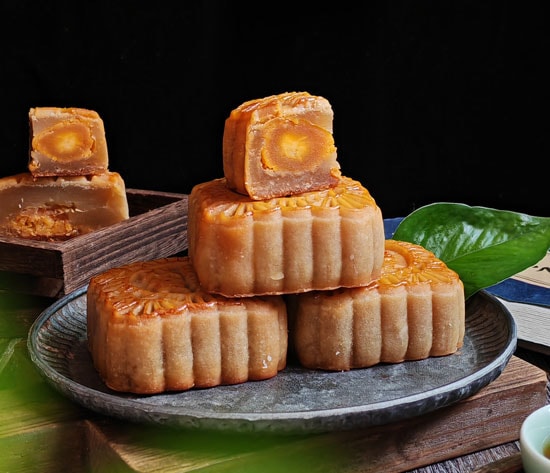
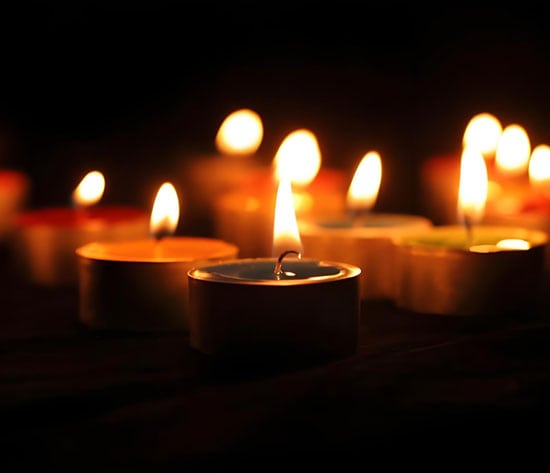
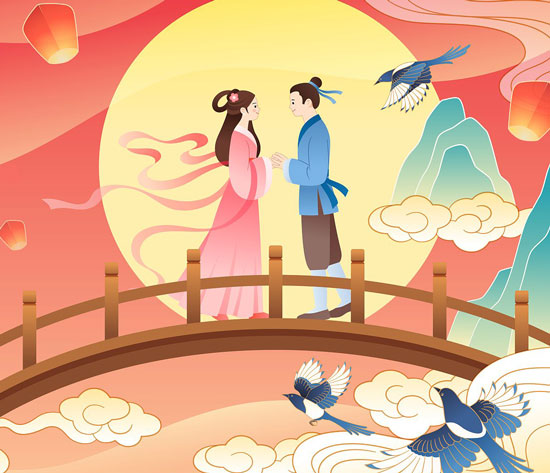
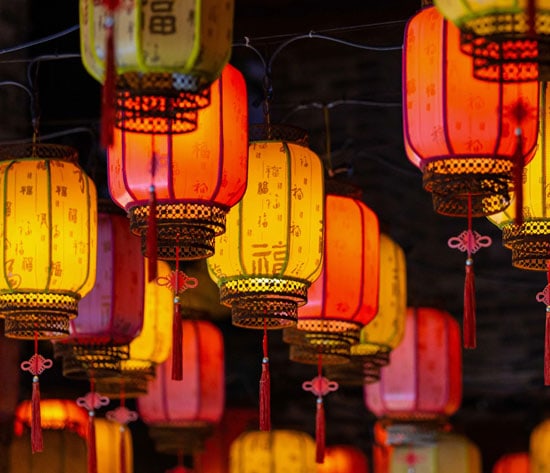
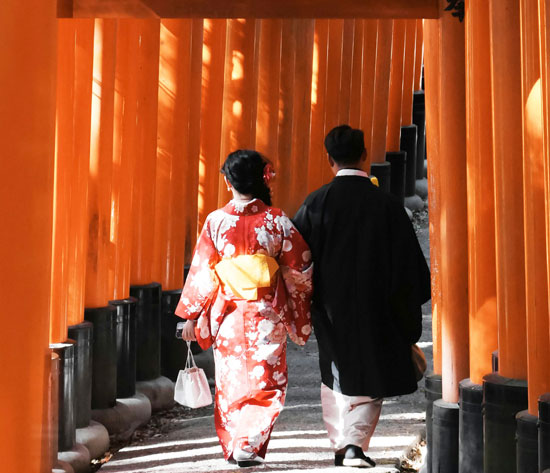
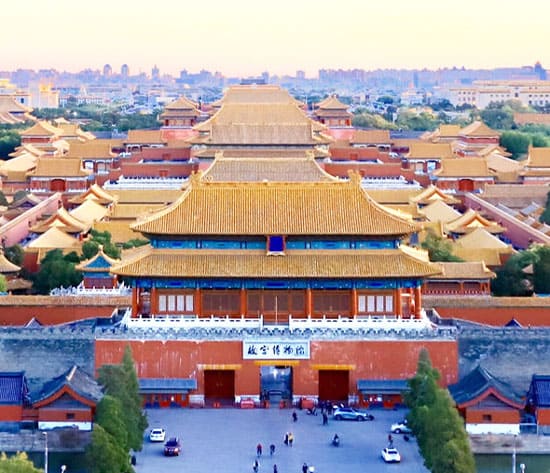
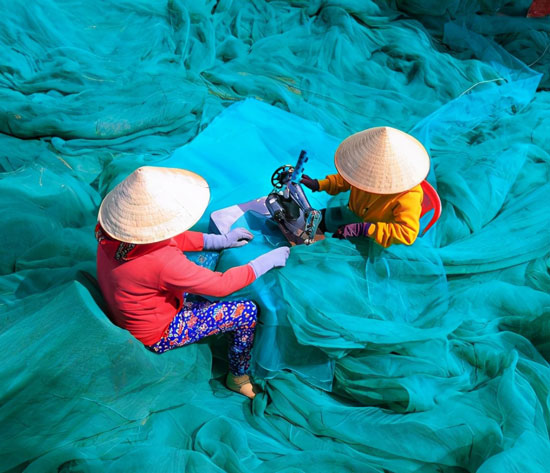
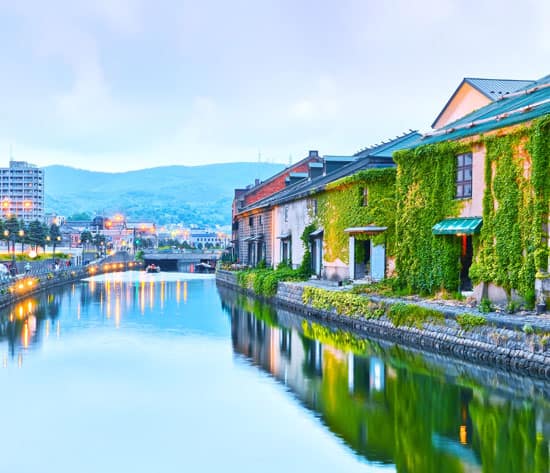
Have a Question?
You might see your comment appear on this page, but your email address and full name will not be published. Your personal information will remain confidential. Our Asia travel experts will get back to you as soon as possible. Required fields are marked *